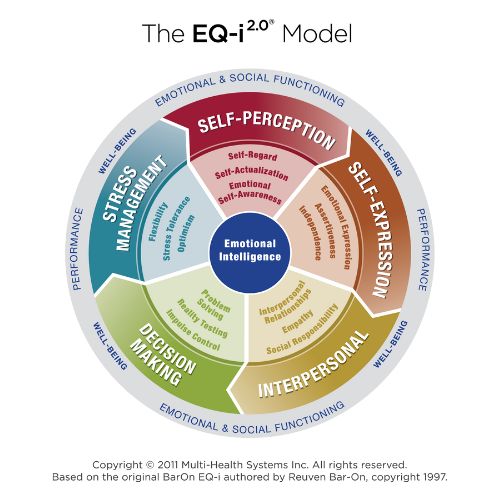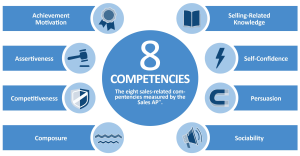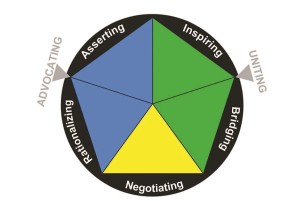The Persuasion Equation
Let’s start with the obvious: whether you sell used cars or million-dollar industrial equipment, a role in sales means you are in the business of persuasion and influence. Sales professions involve effortful, skilled work, and these roles are essential for many businesses to effectively communicate with their clients. Great sales professionals influence desirable outcomes for their company and customers by selling in ways that create valuable, long-term relationships. In doing so, they typically trained to approach persuasion by:
- Being more relational and less transactional
- Building and maintaining trusting relationships with integrity
- Providing a high degree of value that that is specific to their customers’ needs and challenges
When some people hear the word persuasion, they think about underhanded tactics used to trick or coerce people to buy. When we talk about persuasion, this definition is not what we mean. While a salesperson’s goal is still to sell, the path favored today takes a more relational, nurturing, and long-term focused route.
In this spirit, Persuasion was included as one of the eight competencies measured by MHS’ Sales Aptitude Profile™ (Sales AP™). At the highest level, this competency measures how the individual perceives their ability to influence the attitudes and actions of others. Someone skilled in this area will typically find that they are more capable than most at changing customers’ minds, convincing them to accept their product recommendations, and negotiating effectively. Someone less skilled in this competency will likely find influence more challenging or take longer to persuade others.
Though the path to persuasion in sales has shifted over time, it is still a critical competency for salespeople and is well worth the effort and investment to develop and enhance through measurement and learning. Modern sales approaches place more of an emphasis on relational rather than transactional elements, creating an opportunity to incorporate psychometrically sound assessments as the higher-leverage areas for development are more personal, psychological qualities rather than sales tactics.
MHS has assessments that can help sales leaders, trainers, and coaches develop the persuasion skills of sales professionals. These assessments shine a light on essential qualities that can give insight into the ways that an individual may be perceived. Through reflection and open dialogue, those insights can lead to targeted development plans and a greater drive to improve and achieve better sales results. If this competency is an area of focus for you or your clients, these assessments can be valuable tools to guide your development journey.
Identifying critical skills in sales professionals
The Sales AP helps identify critical skills for hiring and development in sales professionals. With a theoretical basis in achievement motivation research, this assessment measures competencies that differentiate great sales professionals from those that might look great but may not deliver great results.
A low score in Persuasion on the Sales AP may indicate that work is needed to improve this skill, but taking a closer look at some of the other competencies can shed more light on different elements critical to influence. For example, a high score in Self-Confidence and Sociability might help you build rapport, but if you are lower in Achievement Motivation, you may not have the drive you need to be diligent and tenacious. Being lower in Assertiveness could hold you back when you’re at the finish line and need to close the deal. The entire profile of scores, and how they balance each other out, is important to consider when evaluating strengths and potential for growth.
Leveraging preferred influence style
The Influence Style Indicator™ (ISI) is an assessment designed to understand an individual’s preferred style as they influence others. The assessment addresses one’s preferred, secondary, and underutilized influencing styles. Using the ISI model, sales professionals can get a deeper understanding of their persuasion strengths and tendencies on two primary orientations:
1) Advocating: Individuals put forward ideas and offer logical and rational reasons to convince others of their point of view.
2) Uniting: Individuals advocate for their position by encouraging others with a sense of shared mission and exciting possibilities.
Within these orientations are five unique influencing styles: Rationalizing, Asserting, Negotiating, Inspiring, and Bridging.
The ISI can help you understand the best application of each style and its potential pitfalls. Understanding your influence style can help you identify strategies to use to become more persuasive with better communication, and it can show you when you might need to be flexible in your style or approach.
Applying emotional intelligence
The Emotional Quotient-Inventory 2.0™ (EQ-i 2.0®) is one of the world’s most popular assessments of emotional intelligence (EI). Breaking down EI into 5 composites and 15 subscales, the EQ-i 2.0 model helps people understand how they identify and manage their emotions and the emotions of others to understand and express themselves, build relationships, make decisions, and overcome challenges.

Many of the qualities measured in the EQ-i 2.0 are important for persuasion, and data from a sample of over 4,000 North American sales professionals highlighted some areas that differentiate them from the general population.
These competencies include:
- Interpersonal Relationship
- Self-Regard
- Optimism
- Independence
- Flexibility
- Self-Actualization
Just because the average salesperson is higher in these areas doesn’t necessarily mean they are all critical for persuasion. The following key subscales can help inform the skill of influence:
- Empathy – valuing and understanding the emotions of others is a fundamental attribute for salespeople, who are professional listeners and need to understand their pain and needs.
- Flexibility – salespeople need to be dynamic and be able to flex depending on the people they are speaking to. While everyone has a style that they are most comfortable with, the best salespeople are agile and can adapt when needed.
- Self-Actualization – commitment, continued development, and a drive towards personally meaningful activities. Self-Actualization can act as an engine to keep you motivated and keep you on a trajectory of continued growth.
Great salespeople are great influencers, but there isn’t one single playbook to follow or cookie-cutter archetype to be to be persuasive. Psychometric assessments can help professionals better understand themselves and their natural styles and behaviors to grow their skills and deliver great results for their companies and clients. Assessments, such as the Sales AP, ISI, and EQ-i 2.0, can be used in combination to hone in on key drivers for success and strategies for development.
Have questions about any of the assessments mentioned in this blog or how to implement them with your clients or organizations? Get in touch to connect with a member of our Talent Development Team!












